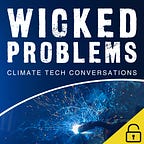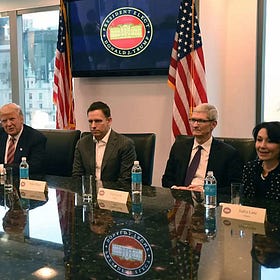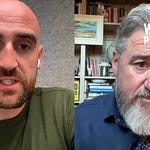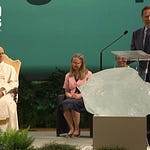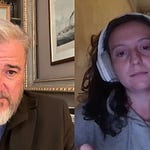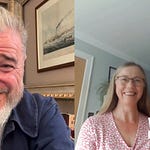Is it better to know? Or, after 500 years of discovery, have we decided it’s better not to know?
Last month, as we discussed with Jeremy Wallace earlier this week, the Council on Foreign Relations put “geoengineering” on the agenda as part of its much broader Climate Realism initiative.
Last week ARIA, the UK government agency sorta modelled on DARPA in the US, announced they would support 21 research teams studying methods for cooling the climate.
Andreas Malm and Wim Carton – who last year published Overshoot: How the World Surrendered to Climate Breakdown - will in October publish the next part of their work. It will argue that fossil capital will embrace adaptation, carbon dioxide removal, and geoengineering, as a last-ditch effort to avoid their assets being suddenly made worthless should the world actually take the obvious step and commit to stop burning things. We’ve put in a bid for Professor Carton in hopes to talk more about Overshoot and tease that next book.
While she was in London, Kelly Wanser made the case for something related, not ‘doing’ or even researching ‘geoengineering’ per se. Something that did not used to be controversial. The idea that it is better to know than to not know.
Kelly is warning that at the moment a lot more people are talking about shoving stuff up into the stratosphere, we are reducing our capacity to measure what’s actually happening up there. It’s not just the US – the UK Met Office discontinued a special unit doing atmospheric observations not too long ago – but the US is where the action is right now. And by action I mean like Godzilla deciding he doesn’t like the look of the planes doing measuring or the building where the scientists work and doing his thing.
Because it’s as if we’ve decided that knowing things is now dangerous.
Even I’m not old enough to remember it — but I do remember sitting in the nurse’s office in grade school reading very out of date books about it — but way back in 1957 at the height of the cold war, the world got together and said “we really need to know more about this 3rd rock from the Sun we share and how it works”, so they had the International Geophysical Year. Scientists from around the world established research bases in places like antarctica, it set off Charles Keeling to start measuring atmospheric CO2 at the top of Mauna Loa the following year. And even if governments or coroporations wanted to avoid some of the science getting out there, fair to say there was a desire to know rather than not know.
Through different parties in government around the world, through a missile crisis, decolonization, oil embargoes, Reagan and Thatcher, the idea that it is better to know than not know was nearly unchallenged. Even if the knowledge was only safe with a few people.
It feels, at least to me, like we may be on the cusp of a change. An active desire not to know. Practically apocalyptic. A ‘simplification’. Something pondered in apocalyptic fiction like Canticle for Leibowitz - which we discussed recently:
So wind forward to 2025, as researcher Peter Gleick in the Bulletin of Atomic Scientists documented earlier this week, calling it “Running Blind” – all of that “we need to know” stuff going back to George W to Reagan to Carter to Kissinger to Nixon to Johnson – all the research that grew out of that idea that it’s better to know – especially from a national security perspective – looks like it’s headed for the same woodchipper as USAID.
If you hate what we’re doing, why are you here?
And at the moment the Council on Foreign Relations is calling for geoengineering research about putting stuff in the stratosphere, the only 3 jets and one satellite specifically configured for stratospheric sampling are US-owned, are 40 years old, and face elimination.
To be fair there are plenty of people who just consider the idea of even researching “geoengineering” anathema and its very existence of that research is a moral hazard and should be shut down. But knowing what’s going on in the stratosphere seems – dinno – kind of important right now? And that’s before recent discovery that in fact all those satellite launches and increased wildfires are starting to change the stratosphere. Maybe there’s a constituency who really would rather not know – and make sure no one else does either. But “we’d rather not know” seems to be in vogue, Kelly Wanser says that’s a terrible idea, and we agree.
If you’re enjoying these conversations check out our newsletter at wickedproblems.earth, subscribe to the feeds, tell a friend, do the things that might help us keep these conversations going.
One production note – bit disjointed. The posted content is audio, but after we discovered there was a problem with the video recording – side note: if someone wants to sponsor Wicked Problems to help us get a producer on board please do get in touch! – we recorded a bonus segment. Here it is:
If you stay long enough to check out our outro tracks, we collect them all here:


